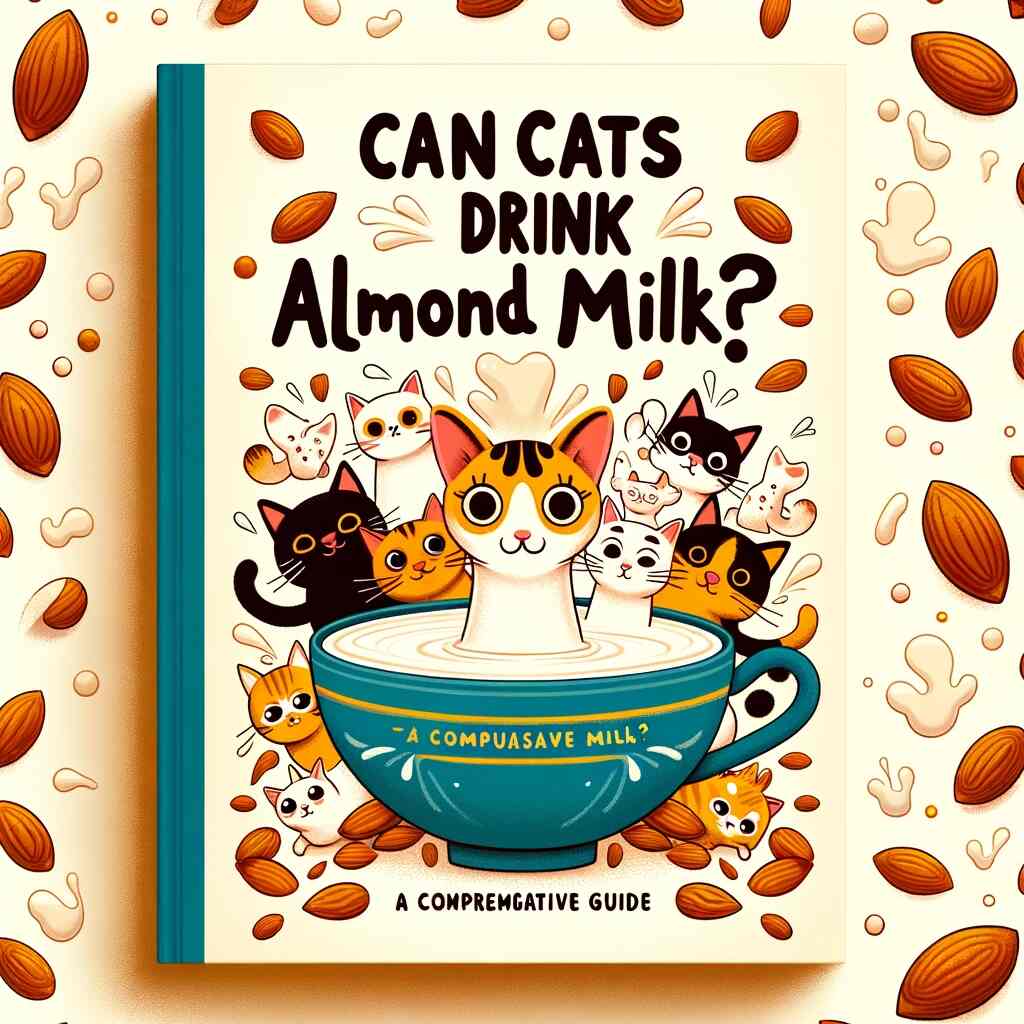Physical Address
304 North Cardinal St.
Dorchester Center, MA 02124
Physical Address
304 North Cardinal St.
Dorchester Center, MA 02124


Cats have a way of capturing our hearts with their endearing antics and charming personalities. As responsible pet owners, we often seek ways to pamper our feline friends and ensure they are happy and healthy. One common question that arises in this pursuit is whether cats can safely consume almond milk.
Cats should not drink almond milk as it lacks essential nutrients and may cause digestive issues. While almond milk is lactose-free and contains vitamin E beneficial for their coat and skin, it’s best to stick to cat-specific treats and fresh water for their overall well-being.
In this comprehensive guide, we will explore the topic of cats and almond milk, providing you with the information you need to make informed decisions about your pet’s diet.

Before delving into the almond milk and cat equation, it’s crucial to have a clear understanding of a cat’s dietary requirements. Cats are obligate carnivores, which means their bodies have evolved to primarily subsist on a diet consisting of animal-based proteins. They have specific nutritional needs that differ significantly from those of omnivorous animals, including humans.
A cat’s diet should ideally consist of:
Now that we have a solid foundation of a cat’s dietary needs, let’s address the main question at hand: can cats drink almond milk?
Almond milk has gained popularity among humans as a dairy-free alternative to traditional cow’s milk. It is made by blending almonds with water and straining the mixture to remove solids. The resulting liquid is often used as a milk substitute in various culinary applications and as a beverage on its own.
Almond milk has some advantages for humans, such as being lower in calories and fat compared to cow’s milk. It is also lactose-free, making it a suitable option for people with lactose intolerance. Additionally, almond milk is often fortified with vitamins and minerals, making it nutritionally comparable to cow’s milk when these fortifications are present.
However, it’s important to note that almond milk may not be an ideal choice for cats. There are several significant reasons why almond milk should be avoided in a cat’s diet:
Almond milk does not provide the essential nutrients that cats need. It lacks the high-quality protein, taurine, and other vital nutrients that are critical for feline health. A study titled “Comparative Nutrition of Cats and Dogs” by the National Research Council highlights the specific nutritional requirements of cats.
Contrary to popular belief, almond milk is not naturally lactose-free. Some commercial almond milk products may contain added lactose or other milk derivatives. Even if it is lactose-free, almond milk does not mean it is suitable for cats, as they have different nutritional requirements than lactose-intolerant humans.
Cats’ digestive systems are sensitive, and introducing new foods can lead to digestive upset. Offering almond milk to your cat may result in gastrointestinal issues such as diarrhea or vomiting, which can be uncomfortable and potentially harmful to your pet. Research on lactose intolerance in cats, such as “Lactase Deficiency in Cats with Gastrointestinal Disorders” in the Journal of the American Veterinary Medical Association, can provide insights into potential digestive problems.
Some cats may be allergic to almonds or other ingredients commonly found in almond milk, such as stabilizers or sweeteners. Allergic reactions in cats can vary in severity and may include symptoms like itching, skin rashes, or gastrointestinal problems.
Almond milk, while lower in calories than cow’s milk for humans, still contains a significant number of calories when compared to a cat’s calorie requirements. Overconsumption of high-calorie foods can lead to weight gain and obesity in cats, which is detrimental to their health.
If you’re looking for safe and appropriate treats or beverages for your cat, there are several alternatives to almond milk that you can consider:
The best beverage for your cat is plain, clean water. Cats have relatively low thirst drives, so it’s essential to encourage them to drink enough water to stay properly hydrated. You can provide fresh water in a clean bowl and ensure it’s readily accessible to your cat at all times.
There are cat-specific milk products available in pet stores. These products are specially formulated to meet feline dietary needs and are often lactose-free. While these milk alternatives are designed with cats in mind, they should still be offered in moderation as an occasional treat rather than a daily beverage.
One of the best ways to ensure your cat receives sufficient moisture is by feeding them wet cat food. Canned cat food has a higher moisture content compared to dry kibble, which can help maintain proper hydration. It also provides the necessary nutrients that cats need to thrive.
If you enjoy making homemade treats for your cat, there are plenty of recipes available that use cat-safe ingredients. These treats can be a fun way to bond with your pet and provide them with something special without compromising their health.
In conclusion, cats should not be given almond milk as a regular part of their diet. Almond milk lacks the essential nutrients that cats require and can lead to nutritional deficiencies and digestive issues. Additionally, the lactose content, potential allergens, and high-calorie content make almond milk an unsuitable choice for feline consumption.
As responsible pet owners, it’s vital to prioritize your cat’s health and well-being by providing them with a diet that aligns with their unique nutritional needs. Stick to a high-quality cat food, fresh water, and cat-specific treats to ensure your furry friend stays happy and healthy.
If you ever have questions or concerns about your cat’s diet, it’s best to consult with a veterinarian who can provide tailored advice based on your cat’s specific needs. By making informed choices and prioritizing your cat’s health, you can enjoy many happy years together with your beloved feline companion.
References:
I recommend you to read this article next: Can Cats Eat Peanut Butter? Complete Guide